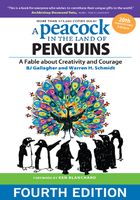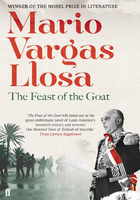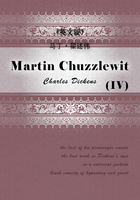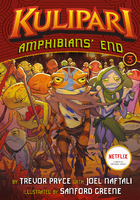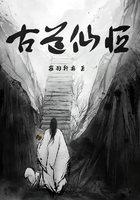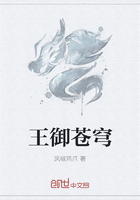Nay, I wouldn't have believed I could take anyone's life, even if I'd been told so moments before I murdered that fool; and thus, my offense at times recedes from me like a foreign galleon disappearing on the horizon. Now and again, I even feel as if I haven't committed any crime at all. Four days have passed since I was forced to do away with hapless Elegant, who was a brother to me, and only now have I, to some extent, accepted my situation.
I would've preferred to resolve this unexpected and awful dilemma without having to do away with anybody, but I knew there was no other choice. I handled the matter then and there, assuming the burden of responsibility. I couldn't let the false accusations of one foolhardy man endanger the entire society of miniaturists.
Nevertheless, being a murderer takes some getting used to. I can't stand being at home, so I head out to the street. I can't stand my street, so I walk on to another, and then another. As I stare at people's faces, I realize that many of them believe they're innocent because they haven't yet had the opportunity to snuff out a life. It's hard to believe that most men are more moral or better than me simply on account of some minor twist of fate. At most, they wear somewhat stupider expressions because they haven't yet killed, and like all fools, they appear to have good intentions. After I took care of that pathetic man, wandering the streets of Istanbul for four days was enough to confirm that everyone with a gleam of cleverness in his eye and the shadow of his soul cast across his face was a hidden assassin. Only imbeciles are innocent.
Tonight, for example, while warming up with a steaming coffee at the coffeehouse located in the back streets of the slave market, gazing at the sketch of a dog hanging on the back wall, I was gradually forgetting my plight and laughing with the rest of them at everything the dog recounted. Then, I had the sensation that one of the men beside me was a common murderer like myself. Though he was simply laughing at the storyteller as I was, my intuition was sparked, either by the way his arm rested near mine or by the way he restlessly rapped his fingers on his cup. I'm not sure how I knew, but I suddenly turned and looked him directly in the eye. He gave a start and his face contorted. As the crowd dispersed, an acquaintance of his took him by the arm and said, "Nusret Hoja's men will surely raid this place."
Raising an eyebrow, he signaled the man quiet. Their fear infected me. No one trusted anyone, everyone expected to be done in at any moment by the man next to him.
It had become even colder, and snow had accumulated on street corners and at the bases of walls. In the blindness of night, I could find my way along the narrow streets only by groping with my hands. At times, the dim light of an oil lamp still burning somewhere inside a wooden house filtered out from behind blackened windows and drawn shutters, reflecting on the snow; but mostly, I could see nothing, and found my way by listening for the sounds of watchmen banging their sticks on stones, for the howling of mad dogs, or the sounds coming from houses. At times the narrow and dreadful streets of the city seemed to be lit up by a wondrous light coming from the snow itself; and in the darkness, amid the ruins and trees, I thought I spotted one of those ghosts that have made Istanbul such an ominous place for thousands of years. From within houses, now and again, I heard the noises of miserable people having coughing fits or snorting or wailing as they cried out in their dreams, or I heard the shouts of husbands and wives as they tried to strangle each other, their children sobbing at their feet.
For a couple of nights in a row, I came to this coffeehouse to relive the happiness I'd felt before becoming a murderer, to raise my spirits and to listen to the storyteller. Most of my miniaturist friends, the brethren with whom I'd spent my entire life, came here every night. Since I'd silenced that lout with whom I'd made illustrations since childhood I didn't want to see any of them. Much embarrasses me about the lives of my brethren, who can't do without gossiping, and about the disgraceful atmosphere of joviality in this place. I even sketched a few pictures for the storyteller so they wouldn't accuse me of conceit, but that failed to put an end to their envy.
They're justified in being jealous. Not one of them could surpass me in mixing colors, in creating and embellishing borders, composing pages, selecting subjects, drawing faces, arranging bustling war and hunting scenes and depicting beasts, sultans, ships, horses, warriors and lovers. Not one could approach my mastery in imbuing illustrations with the poetry of the soul, not even in gilding. I'm not bragging, but explaining this to you so you might fully understand me. Over time, jealousy becomes an element as indispensable as paint in the life of the master artist.
During my walks, which grow increasingly longer due to my restlessness, I come face-to-face occasionally with one of our most pure and innocent religious countrymen, and a strange notion suddenly enters my head: If I think about the fact that I'm a murderer, the man before me will read it on my face. Therefore, I force myself to think of different things, just as I forced myself, writhing in embarrassment, to banish thoughts of women when performing prayers as an adolescent. But unlike those days of youthful fits when I couldn't get the act of copulation out of my thoughts, now, I can indeed forget the murder that I've committed.
You realize, in fact, that I'm explaining all these things because they relate to my predicament. But if I were to divulge even one detail related to the killing itself, you'd figure it all out and this would relieve me from being a nameless, faceless murderer roaming among you like an apparition and relegate me to the status of an ordinary, confessed criminal who has given himself up, soon to pay for his crime with his head. Give me the license not to dwell on every single detail, allow me to keep some clues to myself: Try to discover who I am from my choice of words and colors, as attentive people like yourselves might examine footprints to catch a thief. This, in turn, brings us to the issue of "style," which is now of widespread interest: Does a miniaturist, ought a miniaturist, have his own personal style? A use of color, a voice all his own?
Let's consider a piece by Bihzad, the master of masters, patron saint of all miniaturists. I happened across this masterpiece, which also nicely pertains to my situation because it's a depiction of murder, among the pages of a flawless ninety-year-old book of the Herat school. It emerged from the library of a Persian prince killed in a merciless battle of succession and recounts the story of Hüsrev and Shirin. You, of course, know the fate of Hüsrev and Shirin, I refer to Nizami's version, not Firdusi's:
The two lovers finally marry after a host of trials and tribulations; however, the young and diabolical Shiruye, Hüsrev's son by his previous wife, won't give them any peace. The prince has his eye on not only his father's throne but also his father's young wife, Shirin. Shiruye, of whom Nizami writes, "His breath had the stench of a lion's mouth," by hook or crook imprisons his father and succeeds to the throne. One night, entering the bedchamber of his father and Shirin, he feels his way in the dark, and on finding the pair in bed, stabs his father in the chest with his dagger. Thus, the father's blood flows till dawn and he slowly dies in the bed that he shares with the beautiful Shirin, who remains sleeping peacefully beside him.
This picture by the great master Bihzad, as much as the tale itself, addresses a grave fear I've carried within me for years: The horror of waking in the black of night to realize there's a stranger making faint sounds as he creeps about the blackness of the room! Imagine that the intruder wields a dagger in one hand as he strangles you with the other. Every detail, the finely wrought wall, window and frame ornamentation, the curves and circular designs in the red rug, the color of the silent scream emanating from your clamped throat and the yellow and purple flowers embroidered with incredible finesse and vigor on the magnificent quilt upon which the bare and vile foot of your murderer mercilessly steps as he ends your life, all of these details serve the same purpose: While augmenting the beauty of the painting, they remind you just how exquisite are the room in which you will soon die and the world you will soon leave. The indifference of the painting's beauty and of the world to your death, the fact of your being totally alone in death despite the presence of your wife, this is the inescapable meaning that strikes you.
"This is by Bihzad," the aging master said twenty years ago as we examined the book I held in my trembling hands. His face was illuminated not by the nearby candle, but by the pleasure of observation itself. "This is so Bihzad that there's no need for a signature."
Bihzad was so well aware of this fact that he didn't hide his signature anywhere in the painting. And according to the elderly master, there was a sense of embarrassment and a feeling of shame in this decision of his. Where there is true art and genuine virtuosity the artist can paint an incomparable masterpiece without leaving even a trace of his identity.
Fearing for my life, I murdered my unfortunate victim in an ordinary and crude manner. As I returned to this fire-ravaged area night after night to ascertain whether I'd left behind any traces that might betray me, questions of style increasingly arose in my head. What was venerated as style was nothing more than an imperfection or flaw that revealed the guilty hand.
I could've located this place even without the brilliance of the falling snow, for this spot, razed by fire, was where I'd ended the life of my companion of twenty-five years. Now, snow covered and erased all the clues that might have been interpreted as signature, proving that Allah concurred with Bihzad and me on the issue of style and signature. If we actually committed an unpardonable sin by illustrating that book—as that half-wit had maintained four days ago—even if we had done so unawares, Allah wouldn't have bestowed this favor upon us miniaturists.
That night, when Elegant Effendi and I came here, the snow hadn't yet begun to fall. We could hear the howling of mongrels echo in the distance.
"Pray, for what reason have we come here?" the unfortunate one had asked. "What do you plan to show me out here at this late hour?"
"Just ahead lies a well, twelve paces beyond which I've buried the money I've been saving for years," I said. "If you keep everything I've explained to you secret, Enishte Effendi and I will see that you are happily rewarded."
"Am I to understand that you admit you knew what you were doing from the beginning?" he said in agitation.
"I admit it," I lied obligingly.
"You acknowledge the picture you've made is in fact a desecration, don't you?" he said innocently. "It's heresy, a sacrilege that no decent man would have the gall to commit. You're going to burn in the pits of Hell. Your suffering and pain will never diminish—and you've made me an accomplice."
As I listened to him, I sensed with horror how his words had such strength and gravity that, willingly or not, people would heed them, hoping that they would prove true about miserable creatures other than themselves. Many rumors like this about Enishte Effendi had begun to fly due to the secrecy of the book he was making and the money he was willing to pay—and because Master Osman, the Head Illuminator, despised him. It occurred to me that perhaps my brother gilder, Elegant, had with sly intent used these facts to buttress his false accusations. To what degree was he being honest?
I had him repeat the claims that pitted us against each other, and as he spoke, he didn't mince his words. He seemed to be provoking me to cover up a mistake, as during our apprentice years, when the goal was to avoid a beating by Master Osman. Back then, I found his sincerity convincing. As an apprentice, his eyes would widen as they did now, but back then they hadn't yet dimmed from the labor of embellishing. But finally I hardened my heart; he was prepared to confess everything to everyone.
"Do listen to me," I said with forced exasperation. "We make illuminations, create border designs, draw frames onto pages, we brightly ornament page after page with lovely tones of gold, we make the greatest of paintings, we adorn armoires and boxes. We've done nothing else for years. It is our calling. They commission paintings from us, ordering us to arrange a ship, an antelope or a sultan within the borders of a particular frame, demanding a certain style of bird, a certain type of figure, take this particular scene from the story, forget about such-and-such. Whatever it is they demand, we do it. 'Listen,' Enishte Effendi said to me, 'here, draw a horse of your own imagining, right here.' For three days, like the great artists of old, I sketched hundreds of horses so I might come to know exactly what 'a horse of my own imagining' was. To accustom my hand, I drew a series of horses on a coarse sheet of Samarkand paper."
I took these sketches out and showed them to Elegant. He looked at them with interest and, leaning close to the paper, began to study the black and white horses in the faint moonlight. "The old masters of Shiraz and Herat," I said, "claimed that a miniaturist would have to sketch horses unceasingly for fifty years to be able to truly depict the horse that Allah envisioned and desired. They claimed that the best picture of a horse should be drawn in the dark, since a true miniaturist would go blind working over that fifty-year period, but in the process, his hand would memorize the horse."
The innocent expression on his face, the one I'd also seen long ago, when we were children, told me that he'd become completely absorbed in my horses.
"They hire us, and we try to make the most mysterious, the most unattainable horse, just as the old masters did. There's nothing more to it. It's unjust of them to hold us responsible for anything more than the illustration."
"I'm not sure that's correct," he said. "We, too, have responsibilities and our own will. I fear no one but Allah. It was He who provided us with reason that we might distinguish Good from Evil."
It was an appropriate response.
"Allah sees and knows all…" I said in Arabic. "He'll know that you and I, we've done this work without being aware of what we were doing. Who will you notify about Enishte Effendi? Aren't you aware that behind this affair rests the will of His Excellency Our Sultan?"
Silence.
I wondered whether he was really such a buffoon or whether his loss of composure and ranting had sprung out of a sincere fear of Allah.
We stopped at the mouth of the well. In the darkness, I vaguely caught sight of his eyes and could see that he was scared. I pitied him. But it was too late for that. I prayed to God to give me one more sign that the man standing before me was not only a dim-witted coward, but an unredeemable disgrace.
"Count off twelve steps and dig," I said.
"Then, what will you do?"
"I'll explain it all to Enishte Effendi, and he'll burn the pictures. What other recourse is there? If one of Nusret Hoja's followers hears of such an allegation, nothing will remain of us or the bookarts workshop. Are you familiar with any of the Erzurumis? Accept this money so that we can be certain you won't inform on us."
"What is the money contained in?"
"There are seventy-five Venetian gold pieces inside an old ceramic pickle jar."
The Venetian ducats made good sense, but where had I come up with the ceramic pickle jar? It was so foolish it was believable. I was thereby reassured that God was with me and had given me a sign. My old companion apprentice, who'd grown greedier with each passing year, had already started excitedly counting off the twelve steps in the direction I indicated.
There were two things on my mind at that moment. First of all, there were no Venetian coins or anything of the sort buried there! If I didn't come up with some money this buffoon would destroy us. I suddenly felt like embracing the oaf and kissing his cheeks as I sometimes did when we were apprentices, but the years had come between us! Second, I was preoccupied with figuring out how we were going to dig. With our fingernails? But this contemplation, if you could call it that, lasted only a wink in time.
Panicking, I grabbed a stone that lay beside the well. While he was still on the seventh or eighth step, I caught up to him and struck him on the back of his head with all my strength. I struck him so swiftly and brutally that I was momentarily startled, as if the blow had landed on my own head. Aye, I felt his pain.
Instead of anguishing over what I'd done, I wanted to finish the job quickly. He'd begun thrashing about on the ground and my panic deepened further.
Long after I'd dropped him into the well, I contemplated how the crudeness of my deed did not in the least befit the grace of a miniaturist.


